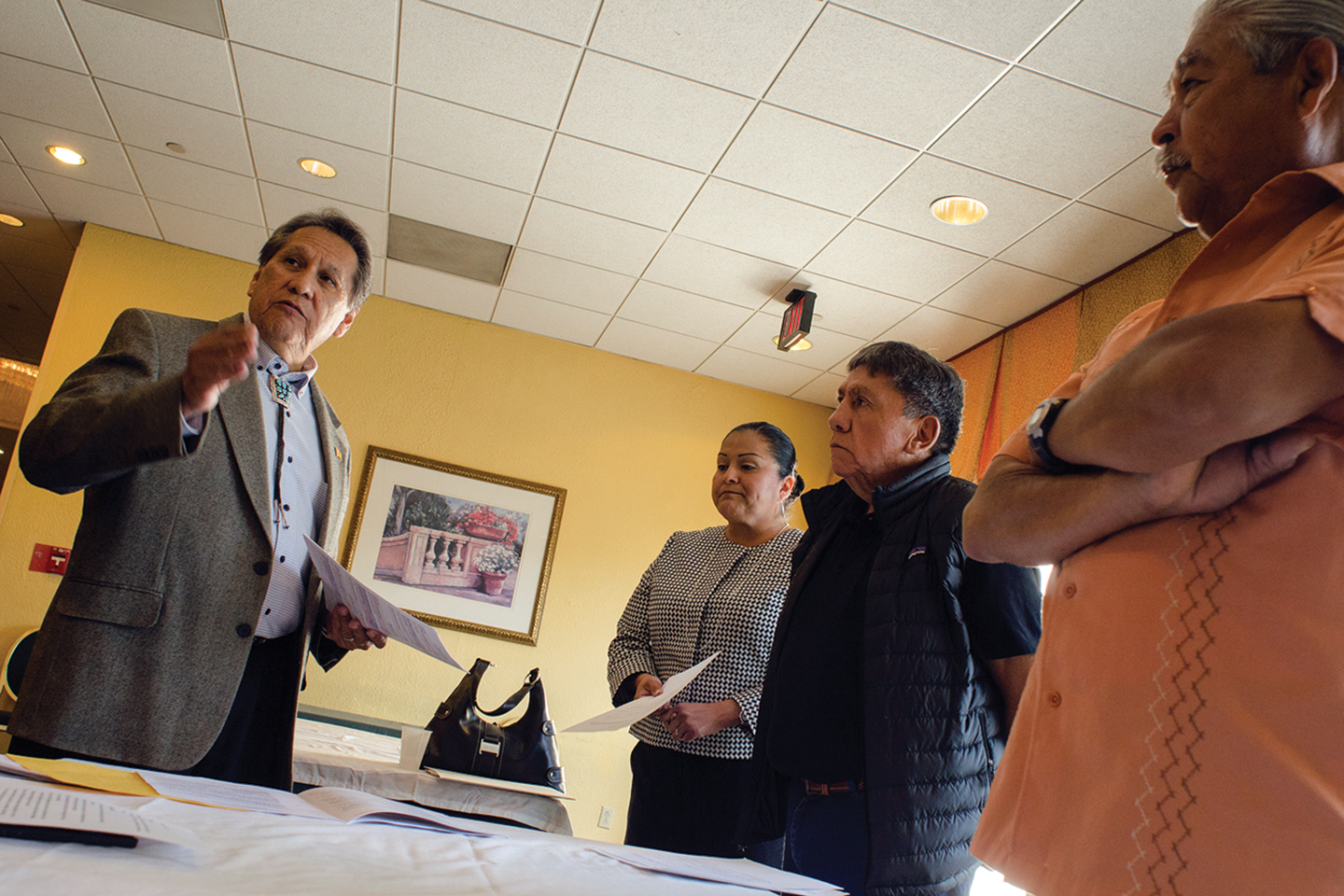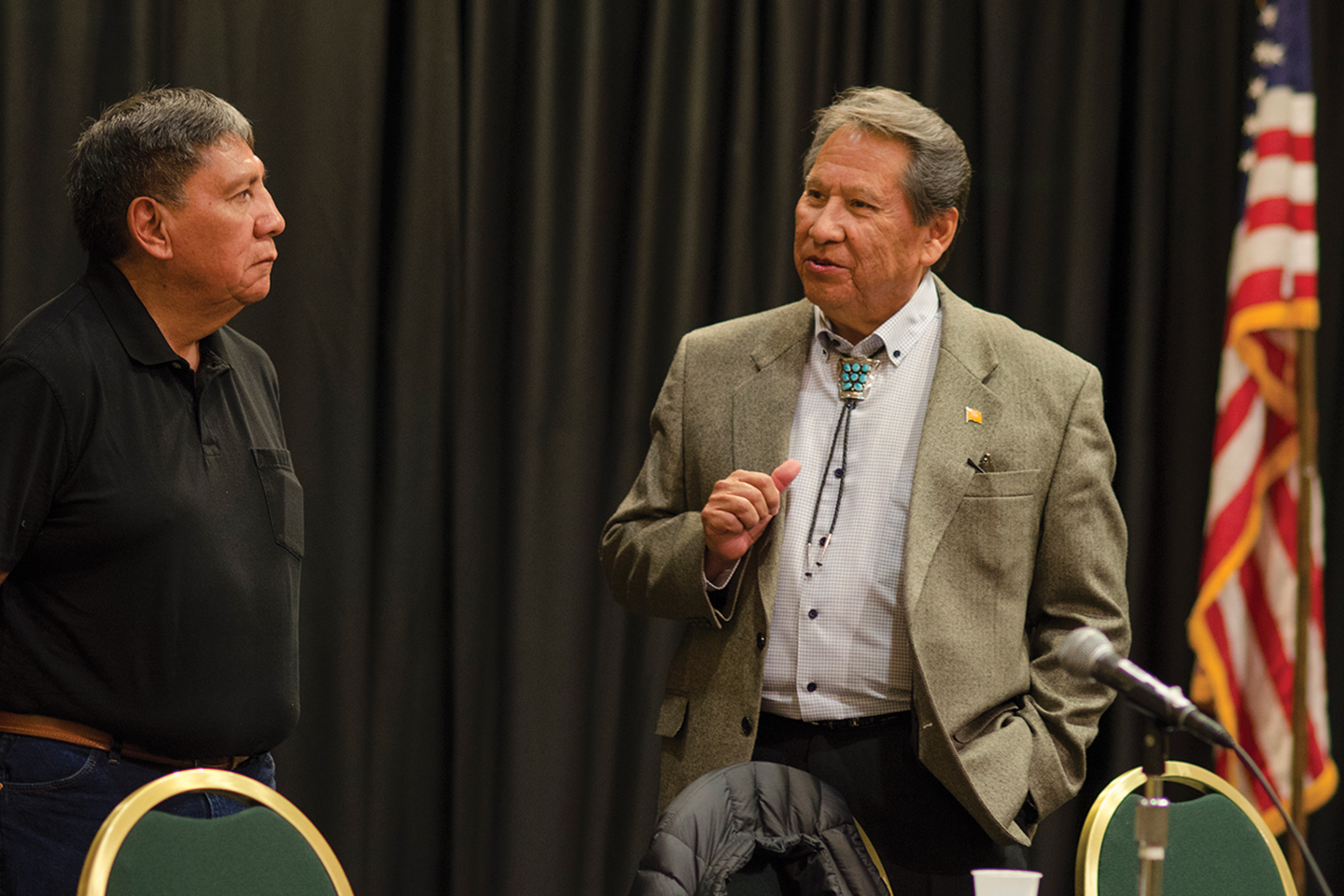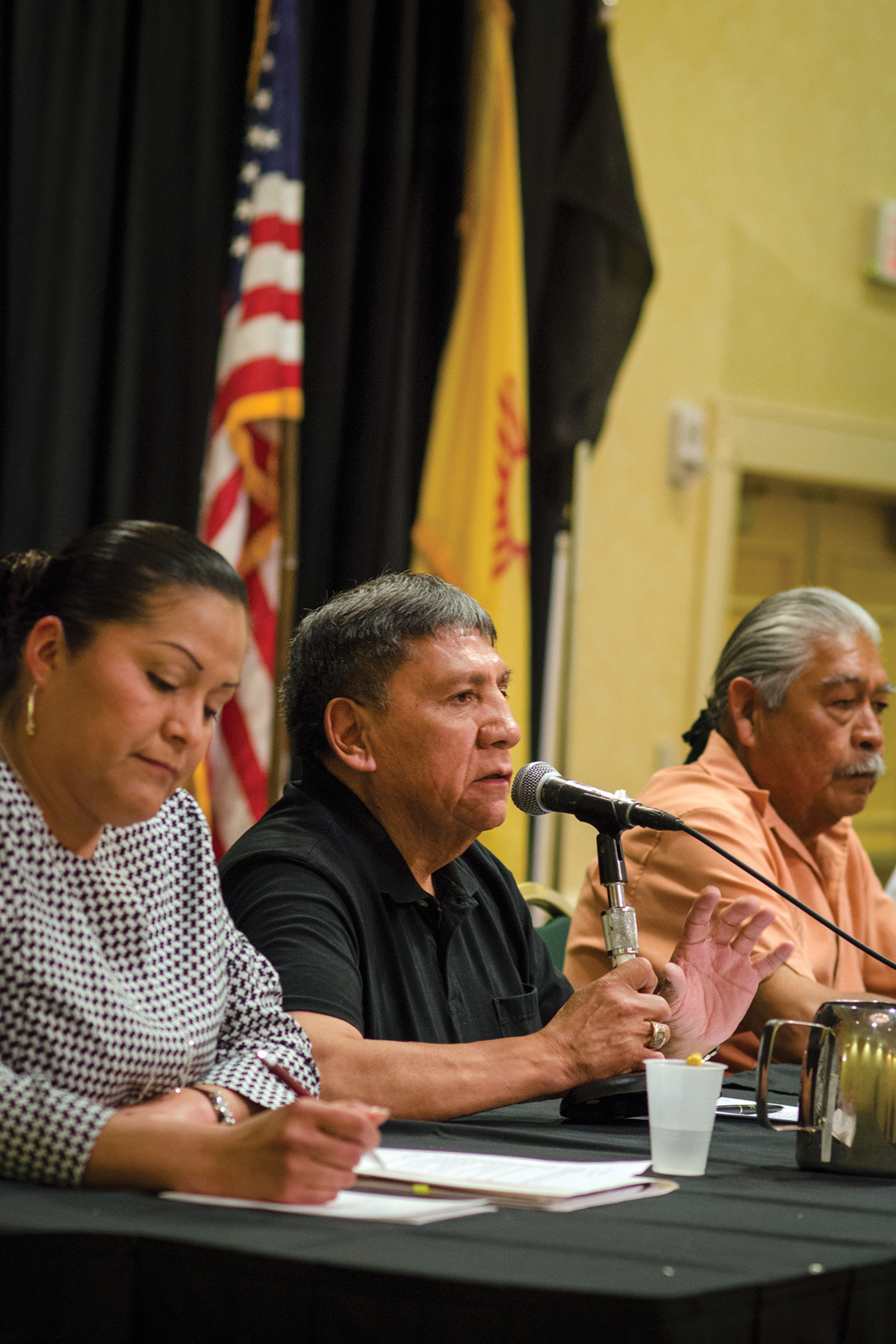“Addiction was a word that was taught, there is no word for addiction in my language,” said one of the young Native Americans speaking out about substance abuse during the youth panel.
In it’s fourth year, the annual conference for Professional Development and Training on Indigenous Prevention/Treatment Strategies on Substance Abuse and Other Behavioral Health Issues took place in Albuquerque, N.M., April 27 through May 2, 2014.
“Youth are the leaders of today,” Second Lt. Governor Lloyd Tortalita said – Acoma and Kewa Pueblos addressing the youth panel. “Please young people, get involved, if your not involved, your not there.”
The Marriott Hotel played host to a panel of five veterans who recounted their own challenges upon returning to civilian life as Native Americans following the Vietnam War and subsequent American conflicts, during a plenary session on Thursday, May 1.
“I am thankful to be home,” Southern Ute Vietnam Veteran Rod Grove said, “Little did I know it was only the beginning”
Grove served in the Vietnam Conflict from Aug. 1970 through Oct. 1971.
“They put up a statue [in our Nation’s capitol], Grove said, “The Three Soldiers. Guess who they left out?”
“The American Indian,” he answered. “I don’t really like being left out.”
Demetria DeJesus of the Laguna Pueblo was the only female veteran on the panel and was proud of her military career, spanning 20 years. DeJesus served during Operation Iraqi Freedom.
Looking back she said she was pleased to have joined the military as a young woman, not sure what other direction her life might have taken. She also encouraged other female veterans to reach out and connect.
“They never prepared me well for the civilian life I was to return to,” said Ulyces Abeita, Isleta Pueblo, “ [I turned] to self medication – Budweiser.”
Many of the Vietnam veterans speaking on the panel felt under-appreciated upon their return from their combat tours in South East Asia. Many struggled with addiction in the early years.
“If the leadership does not get involved, then it won’t happen,” Grove said referring to funding veterans programs and health care for Native American Veterans, “If you’re a leader, then lead by example and help us.”
Abeita agreed, “Every veteran should have the right to medical services.”
“When you go to war, or Vietnam, there is always a bullet with your name on it, – they say,” Buddy Adams said. “Today I’m a pastor, what I needed in my heart and mind was the creator.”
Adams received the Purple Heart following his service in Vietnam; he is from Fort Peck, Mont., and a member of the Sioux tribe.
“Spirituality as Native Americans has a lot to do with who we are,” Tortalita said. “I believe in what I learned, it is what I live by,” Tortalita continued. “How lucky I am that my name is not on that Vietnam wall.”






